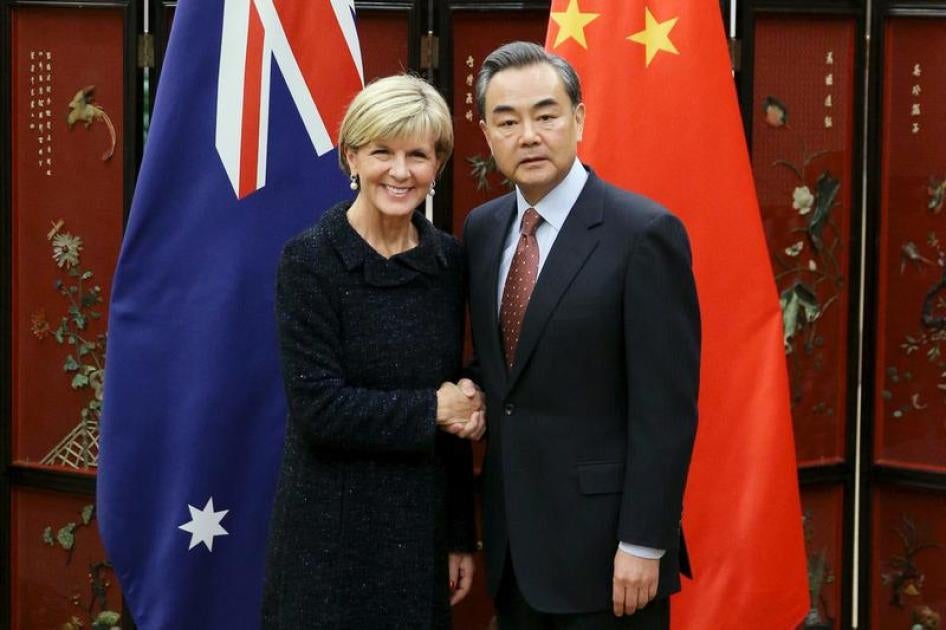This week, Australian Foreign Minister Julie Bishop and Chinese Foreign Minister Wang Yi posed for cameras in Canberra, telling journalists about deepening the strategic partnership between the two nations. That same day, an Australian parliamentary committee recommended – “with caveats” – that the Australian government ratify an extradition treaty with China. The caveats include “tak[ing] into account the current state of China’s judicial system,” and “an undertaking by China to provide a fair trial” to anyone extradited by Australia.
But the committee and Canberra would do well to consider recent legal developments in China before extending such a vote of confidence and adopting the treaty. In mid-January, China’s top judge publicly
attacked the concept of judicial independence, a wake-up call for those who still have doubts as to whether China’s legal system is independent of the Chinese Communist Party. In late January, news broke that human rights lawyers who had been forcibly disappeared for more than a year have been
badly tortured, one to the point of mental breakdown. The month wrapped up with a billionaire close to China’s leadership being
abducted from a luxury hotel in Hong Kong, a special administrative region that has a separate legal system, and taken to the mainland.
An honest account of China’s judicial system needs to acknowledge the following: that it chronically denies people
basic fair trial rights, even in routine criminal cases. That defendants face
ill-treatment and torture – despite policies prohibiting such treatment –with little hope of redress. That Chinese security forces
tracking down Chinese citizens suspected of corruption who have fled abroad do so without the permission of other jurisdictions, including Australia. And despite decades of calls for reform both within China and internationally, the government has still not aligned its key criminal laws and policies with international human rights standards, and instead has adopted more
abusive laws.
The parliamentary committee called on the Australian government to “improve collection, and if possible, reporting on whether an extradited Australian citizen’s trial has taken place, if the person had been found guilty or not, and what sentence has been imposed." But if Australia doesn’t currently get such information, which is addressed in
multinational treaties, why think an extradition treaty will improve the situation?
Even worse, the committee’s statement says nothing about what Australia
should do when these guarantees are violated.
It’s understandable that Australia wants to protect its citizens from harm, and extradition treaties can contribute to that. But if Australia really wants to protect its nationals by improving rule of law in China, a priority Canberra likes to trumpet, it needs to set clear benchmarks for China – freeing human rights lawyers, repealing abusive laws, ensuring suspects have lawyers – to meet before going down this rocky road. Whitewashing China’s appallingly unjust legal system does no one in either country any favors.









